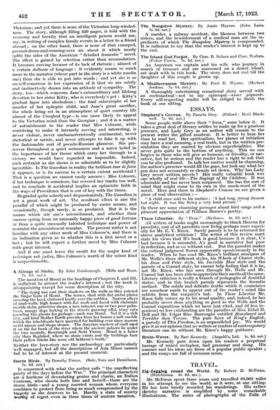These Liberties. By " Evoe." (Methuen. 4s. 6d. net.) All
writers of books ought unceasingly to thank Heaven for parodists, and of all parodists now living perhaps more especi- ally for Mr. E. V. Knox. Surely parody is to be esteemed far above analytical criticism ! The writer of this review must state his views that B's book is good because it is clear, C's bad because it is uncandid, A's good in narrative but poor in reflection, and so on without end. But the parodist makes the critical judgment flower apparently spontaneously in the reader. When he has read Mr. Knox's brilliant amalgam of Mr. Wells's three different styles, his Wheels of Chance style, his Joan and Peter style, his Invisible Man style and the parody of a Conrad story, he cannot help feeling that it is he, not Mr. Knox, who has seen through Mr. Wells and Mr. Conrad but has been able to appreciate their merits all the same. Literary criticism is really a branch of pedagogics Of doubtful status, and in this branch parody represents the Socratic method. The subtle and delicate truths which it enunciates are somehow made to appear out of the reader's mind like rabbits from the conjurer's hat. In These Liberties Mr. Knox fully comes up to his usual quality, and, indeed, he has probably never done anything so good as the Wells and the Conrad expositions which we have just cited, and (if less in- genious) no less exhilarating are the parodies of Miss Ethel M. Dell and Mr. Edgar Rice Burroughs entitled Bravebeard and Terribler than Tarzan. The pure farce of King's English, a parody of This Freedom, is an unparalleled joy. We would give it as our opinion that no writers or readers of contemporary literature can do without Mr. Knox's happy guidance.










































 Previous page
Previous page